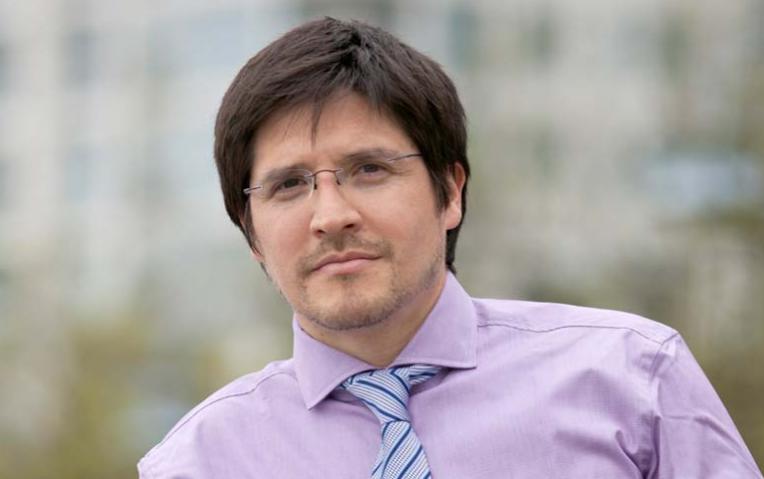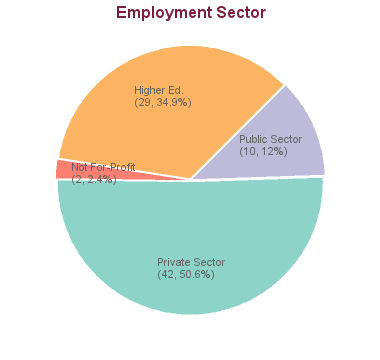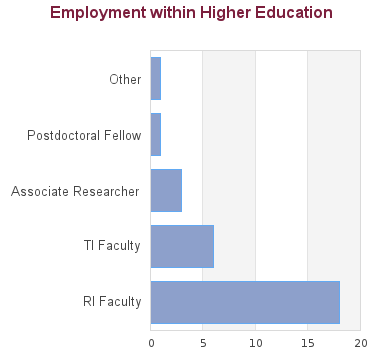
Freddy Pina
Job Title
President
Employer
PBRV Consulting Ltd.

Civil engineering is a professional engineering discipline that deals with the design, construction, and maintenance of the natural and built environment. It is a very broad field made up of several sub-disciplines such as environmental engineering, construction engineering, geotechnical engineering, hydrotechnical engineering, materials engineering, structural engineering, and transportation engineering. Many of the sub-disciplines of civil engineering are themselves very broad and are made up of further distinguishable sub-disciplines. For example, hydrotechnical engineering includes water resources engineering, offshore engineering and coastal engineering.
The Faculty of Graduate and Postdoctoral Studies establishes the minimum admission requirements common to all applicants, usually a minimum overall average in the B+ range (76% at UBC). The graduate program that you are applying to may have additional requirements. Please review the specific requirements for applicants with credentials from institutions in:
Each program may set higher academic minimum requirements. Please review the program website carefully to understand the program requirements. Meeting the minimum requirements does not guarantee admission as it is a competitive process.
Applicants from a university outside Canada in which English is not the primary language of instruction must provide results of an English language proficiency examination as part of their application. Tests must have been taken within the last 24 months at the time of submission of your application.
Minimum requirements for the two most common English language proficiency tests to apply to this program are listed below:
Overall score requirement: 100
Reading
22
Writing
25
Speaking
21
Listening
22
Overall score requirement: 7.0
Reading
6.5
Writing
6.5
Speaking
6.5
Listening
6.5
Some programs require additional test scores such as the Graduate Record Examination (GRE) or the Graduate Management Test (GMAT). The requirements for this program are:
The GRE is optional.
Deadline to submit online application. No changes can be made to the application after submission.
Transcript DeadlineDeadline to upload scans of official transcripts through the applicant portal in support of a submitted application. Information for accessing the applicant portal will be provided after submitting an online application for admission.
Referee DeadlineDeadline for the referees identified in the application for admission to submit references. See Letters of Reference for more information.
All applicants have to submit transcripts from all past post-secondary study. Document submission requirements depend on whether your institution of study is within Canada or outside of Canada.
A minimum of three references are required for application to graduate programs at UBC. References should be requested from individuals who are prepared to provide a report on your academic ability and qualifications.
Many programs require a statement of interest, sometimes called a "statement of intent", "description of research interests" or something similar.
Students in research-based programs usually require a faculty member to function as their thesis supervisor. Please follow the instructions provided by each program whether applicants should contact faculty members.
Permanent Residents of Canada must provide a clear photocopy of both sides of the Permanent Resident card.
All applicants must complete an online application form and pay the application fee to be considered for admission to UBC.
Civil Engineering Materials, Environmental Engineering (Environmental Fluid Mechanics, Geo-Environmental, Pollution Control & Wastewater Management), Geotechnical Engineering, Hydrotechnical Engineering, Project & Construction Management, Structural Enginering (Earthquake Engineering), Transportation Engineering
| Fees | Canadian Citizen / Permanent Resident / Refugee / Diplomat | International |
|---|---|---|
| Application Fee | $116.25 | $168.25 |
| Tuition * | ||
| Installments per year | 3 | 3 |
| Tuition per installment | $1,875.34 | $3,294.66 |
| Tuition per year (plus annual increase, usually 2%-5%) | $5,626.02 | $9,883.98 |
| Int. Tuition Award (ITA) per year (if eligible) | $3,200.00 (-) | |
| Other Fees and Costs | ||
| Student Fees (yearly) | $1,144.10 (approx.) | |
| Costs of living | Estimate your costs of living with our interactive tool in order to start developing a financial plan for your graduate studies. | |
Applicants to UBC have access to a variety of funding options, including merit-based (i.e. based on your academic performance) and need-based (i.e. based on your financial situation) opportunities.
From September 2024 all full-time students in UBC-Vancouver PhD programs will be provided with a funding package of at least $24,000 for each of the first four years of their PhD. The funding package may consist of any combination of internal or external awards, teaching-related work, research assistantships, and graduate academic assistantships. Please note that many graduate programs provide funding packages that are substantially greater than $24,000 per year. Please check with your prospective graduate program for specific details of the funding provided to its PhD students.
This results in a net balance (any funding provided to the student minus tuition and fees) mean of $28,706 and median of $29,616.
All applicants are encouraged to review the awards listing to identify potential opportunities to fund their graduate education. The database lists merit-based scholarships and awards and allows for filtering by various criteria, such as domestic vs. international or degree level.
Many professors are able to provide Research Assistantships (GRA) from their research grants to support full-time graduate students studying under their supervision. The duties constitute part of the student's graduate degree requirements. A Graduate Research Assistantship is considered a form of fellowship for a period of graduate study and is therefore not covered by a collective agreement. Stipends vary widely, and are dependent on the field of study and the type of research grant from which the assistantship is being funded.
Graduate programs may have Teaching Assistantships available for registered full-time graduate students. Full teaching assistantships involve 12 hours work per week in preparation, lecturing, or laboratory instruction although many graduate programs offer partial TA appointments at less than 12 hours per week. Teaching assistantship rates are set by collective bargaining between the University and the Teaching Assistants' Union.
Academic Assistantships are employment opportunities to perform work that is relevant to the university or to an individual faculty member, but not to support the student’s graduate research and thesis. Wages are considered regular earnings and when paid monthly, include vacation pay.
Canadian and US applicants may qualify for governmental loans to finance their studies. Please review eligibility and types of loans.
All students may be able to access private sector or bank loans.
Many foreign governments provide support to their citizens in pursuing education abroad. International applicants should check the various governmental resources in their home country, such as the Department of Education, for available scholarships.
The possibility to pursue work to supplement income may depend on the demands the program has on students. It should be carefully weighed if work leads to prolonged program durations or whether work placements can be meaningfully embedded into a program.
International students enrolled as full-time students with a valid study permit can work on campus for unlimited hours and work off-campus for no more than 24 hours a week during academic sessions.
A good starting point to explore student jobs is the UBC Work Learn program or a Co-Op placement.
Students with taxable income in Canada may be able to claim federal or provincial tax credits.
Canadian residents with RRSP accounts may be able to use the Lifelong Learning Plan (LLP) which allows students to withdraw amounts from their registered retirement savings plan (RRSPs) to finance full-time training or education for themselves or their partner.
Please review Filing taxes in Canada on the student services website for more information.
Applicants have access to the cost estimator to develop a financial plan that takes into account various income sources and expenses.
96 students graduated between 2005 and 2013: 1 graduate is seeking employment; for 12 we have no data (based on research conducted between Feb-May 2016). For the remaining 83 graduates:


Many graduates from the Civil Engineering program at UBC use the knowledge and experience they gain from the broad academic program as a stepping stone to non-engineering careers, such as in business and management, or go on to other academic disciplines such as architecture or medicine.
Graduates from the Civil Engineering program at UBC who go on to practice as professional engineers are employed by small and large consulting engineering companies – some providing more specialized services and others more comprehensive services; engineering companies that provide large-scale infrastructure projects; crown corporations such as BC Hydro; and various levels of government – municipal, provincial and federal governments, and government branches and agencies
These statistics show data for the Doctor of Philosophy in Civil Engineering (PhD). Data are separated for each degree program combination. You may view data for other degree options in the respective program profile.
| 2023 | 2022 | 2021 | 2020 | 2019 | |
|---|---|---|---|---|---|
| Applications | 90 | 102 | 123 | 114 | 122 |
| Offers | 16 | 13 | 22 | 20 | 12 |
| New Enrolment | 10 | 7 | 17 | 16 | 11 |
| Total Enrolment | 79 | 81 | 81 | 78 | 71 |
Students in research-based programs usually require a faculty member to function as their thesis supervisor. Please follow the instructions provided by each program whether applicants should contact faculty members.
These videos contain some general advice from faculty across UBC on finding and reaching out to a supervisor. They are not program specific.
| Year | Citation |
|---|---|
| 2012 | Dr. Mahsuli developed a new methodology, and a comprehensive computer program, for evaluating risk to buildings and infrastructure due to natural and manmade hazards. His research provides a rational basis to prioritize the buildings in a given region for retrofit, with the goal of reducing seismic risk. |
| 2012 | Dr. Imam studied how wind excites large-scale internal waves in lakes by linking wave excitation to lake bathymetry, stratification, and wind-forcing characteristics. The findings are important to understanding dispersion of nutrients and contaminants in lakes, to designing selective withdrawal facilities for reservoirs, and to sustainable management of our water resources. |
| 2012 | Dr. Ahmadnia studied the response of underground power transmission cables subjected to earthquake induced permanent ground deformation. Using advanced numerical simulations calibrated and validated with experimental data, he proposed a methodology to assess the seismic response of underground power transmission cables. |
| 2012 | Dr. Lara studied damage accumulation, in reinforced concrete columns which occurs during earthquakes. Based on lack on inclusion of this failure mechanism in actual design codes, Dr. Lara proposed a mathematical model that allows estimatation of the mechanism so designers can incorporate damage accumuation in their column designs. |
| 2011 | Dr. Forghani developed a computational model to simulate the effect of damage on the behaviour of composite structures. Composites are becoming the material of choice in today's construction of advanced aircraft structures. Therefore, predicting their behaviour under detrimental loads is crucial in design of such structures. |
| 2011 | Dr. Borstad measured the mechanical properties of snow, related to the release of avalanches. He developed a hand-held instrument for predicting these properties in the field, and performed computer simulations of crack development in snow. This research will allow better predictions of the timing and size of avalanches. |
| 2011 | Dr. Gorgy examined the transport of a group of compounds in biosolids-amended soil and clay lining materials for landfills. These compounds are added to many consumer products as flame retardants and are found in biosolids and landfill leachates. He found that they can potentially move in the soil and clay lining material. The research is helpful in establishing land application of biosolids and waste disposal regulations as well as landfill lining design requirements. |
| 2011 | Dr. Nepal developed a novel approach that allows construction professionals to automatically identify the most relevant and useful design information from a digital model of a building. His work has the potential to improve efficiency and productivity in the architectural, engineering, and construction industry. |
| 2011 | Dr. Naghibi developed a methodology for estimating the impact of floods on the environment downstream of dams. Combining concepts of civil engineering and ecology, he modelled fish behaviour during high floods, estimated fish loss and assessed the environmental impact. This work will contribute to environmental risk assessment in dams. |
| 2011 | Dr. Forrest examined the three dimensional nature of physical transport processes in lakes with specific interest in horizontal temperature variability of the water column. His use of unmanned submarines as data collection platforms in this effort allowed unique observations to be made in ice-covered environments that would be otherwise near-impossible. |
Civil Engineering covers the following areas of specialization: civil engineering materials, environmental fluid mechanics, environmental systems engineering, geo-environmental engineering, geotechnical engineering, hydrotechnical engineering, project & construction management, structural & earthquake engineering, transportation engineering
Departments/Programs may update graduate degree program details through the Faculty & Staff portal. To update contact details for application inquiries, please use this form.

Our community of scholars is one of the world’s finest, committed to discovering and sharing knowledge, and to tackling the challenges that face our world.